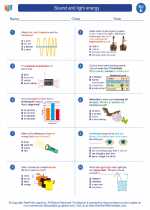Sound and light energy -> storytelling
Storytelling
Storytelling is the art of using words, sounds, and visuals to convey a narrative. It has been a fundamental form of communication throughout human history, serving to entertain, educate, and preserve cultural traditions. In addition to being a creative outlet, storytelling helps develop language skills, fosters imagination, and promotes empathy by allowing individuals to see the world from different perspectives.
Key Elements of Storytelling
- Plot: The sequence of events that form the narrative.
- Characters: The individuals or entities that drive the story.
- Setting: The time and place in which the story takes place.
- Conflict: The central problem or tension that drives the plot forward.
- Theme: The central idea or message that the story conveys.
Types of Storytelling
Storytelling can take various forms, including:
- Oral Tradition: Passing down stories through spoken word from one generation to the next.
- Literature: Stories conveyed through written or printed text.
- Visual Media: Storytelling through films, television shows, and other visual mediums.
- Interactive Storytelling: Engaging audiences through interactive and immersive experiences.
Benefits of Storytelling
Engaging in storytelling offers numerous benefits, including:
- Enhanced language and communication skills
- Improved cognitive development and critical thinking
- Increased cultural awareness and empathy
- Strengthened emotional intelligence
- Boosted creativity and imagination
Studying Storytelling
When studying storytelling, it is important to explore various aspects, such as:
- The structure of different types of stories
- The cultural and historical significance of storytelling traditions
- The impact of storytelling on social and emotional development
- The use of storytelling as a tool for advocacy and social change
- The role of technology in shaping modern storytelling methods
By delving into these aspects, individuals can gain a deeper understanding of the power and influence of storytelling in shaping human experiences and connecting people across diverse backgrounds.
[Storytelling] Related Worksheets and Study Guides:
.◂Science Worksheets and Study Guides Fifth Grade. Sound and light energy

 Activity Lesson
Activity Lesson
 Worksheet/Answer key
Worksheet/Answer key
 Worksheet/Answer key
Worksheet/Answer key
 Worksheet/Answer key
Worksheet/Answer key
 Worksheet/Answer key
Worksheet/Answer key
 Vocabulary/Answer key
Vocabulary/Answer key
 Vocabulary/Answer key
Vocabulary/Answer key
